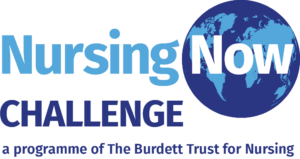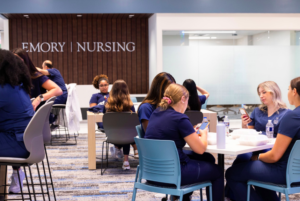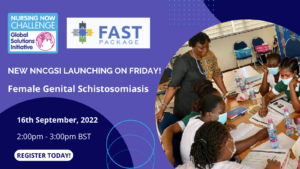Discovering the power of Health Action Training
This blog was written by Pat Deeny, a registered nurse, Nurse Educator and CEO of Health Action Training Ltd from Derry in Northern Ireland.
My name is Pat Deeny a Nurse and Nurse Educator from Northern Ireland. I am presently CEO of Health Action Training Ltd a new company that uses techniques from Actor Training and Applied Drama to enhance communication skills for Healthcare Professionals.
After qualifying in 1981 I worked in Surgical Nursing with a special focus on caring for people who had an ileostomy or a colostomy. I eventually moved to Intensive Care Nursing. At that time Northern Ireland was in the midst of the ‘Troubles’ and we had people with gunshot wounds and injuries from bomb blasts recovering in our hospitals. As is the case during the Covid-19 pandemic, the Nurses were under great pressure experiencing hardships and distress, many losing family members and neighbours but keeping everyone’s spirits up; helping communities to smile, to recover.
In such high-tech environments where people are close to death and families are distressed Nurses provide the dignity and attention to being human and person-centred. In the Intensive Care Unit, I became the complete nurse, I grew in knowledge and confidence about the ‘therapy’ that is Nursing. Nurses have such potential for being therapeutic but only if the self-awareness, knowledge and skills are right. Furthermore, despite what many think such competency is not intuitive. It has to be taught.
In 1984 I went to Baghdad, Iraq also in the midst of a war. I worked in the Ibn Al Bitar Hospital which is now a famous cardiology centre. At that time, it functioned as a specialist surgical hospital. I worked on the Renal Transplant programme with the eminent Nephrologist and Renal Surgeon Peter John Little from New Zealand. The Iraqi people were so kind to us, so grateful for any healthcare during those terrible times. In Iraq I gained a passion for working with people from other cultures, languages and belief systems. I realised that dealing with the trauma caused by crisis, disaster or war situations has a great impact on everyone’s mental health. Also, while Nurses may have an innate ability to provide leadership in crisis and disaster situations they still need proper education and support.
After returning from Iraq in the mid –eighties, I became a teacher of Nursing. At this point I began to explore the value of the applied arts in Nursing and how art facilitates expression and deeper learning. In 1991 I took up a lecturing post at the School of Nursing, Ulster University, my alma mater. Here I was given the freedom and support to flourish. I became the exciting and somewhat unpredictable teacher that I wanted to be, pushing and coaxing my students to achieve what Aristotle called phronesis or depth of reflection that is only prompted by sound experimental learning.
Throughout my life I have always had strong links with the Nurses who work in the world’s disaster zones. Following the conflict in the Balkans in the 1990s I led a group of Nurses in the creation of the world’s first Masters in Disaster Nursing and Healthcare. Many cherished ideas emerged from this course none more so than the value of role play and simulation of crisis and disaster situations including the effective use of simulation in austere environs.
Despite everyone’s best effort, lots of training courses and a plethora of negative reports, poor communication in healthcare remains the top complaint and source of litigation. This adds to the distress of everyone in what are already overburdened health systems.
Eight years ago I went to a Drama Workshop facilitated by Dr Matt Jennings at the School of Arts and Humanities Ulster University. Matt is a Lecturer in Drama Teacher and co-founder of Health Action Training (HAT). We both realised the potential of actor training and applied drama to enhance the communication problems in healthcare. I immediately saw the opportunity to re-energise the ‘Art of Nursing’. Being centred, relaxed, breathing properly and paying closer attention to other humans is the first step towards improving communication. The beauty of HAT – and what makes it so effective and original – is that we combine skills from actor training, with the ethos and approaches of applied drama. HAT also helps with personal resilience in what is a daily crisis situation in healthcare.
My work in crisis and disaster training, working with other cultures and dealing with many challenging communication issues throughout my life has helped me embrace the HAT innovation. The power of HAT in changing how we view communication training is my greatest achievement as a Nurse and a Nurse Educator.
Important Reference
Jennings, M., Deeny, P., and Tizzard-Kleister, K. (2020) ‘Acts of Care’: applied drama, ‘sympathetic presence’ and person-centred nursing’, in Stuart-Fisher, A. & Thompson, J. (eds.) Performing Care: New perspectives on socially engaged performance, Manchester: Manchester University Press pp. 187-203 (CHAPTER 11)
Available at: https://www.manchesteropenhive.com/view/9781526146816/9781526146816.xml




